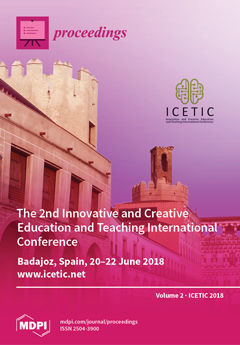Given the diversity of meanings nowadays, creativity and mathematical creativity are difficult to define. However, it is crucial to do so, whether in society, in education or in mathematics education. Creativity is not valued as an integral part of the classroom context of
[...] Read more.
Given the diversity of meanings nowadays, creativity and mathematical creativity are difficult to define. However, it is crucial to do so, whether in society, in education or in mathematics education. Creativity is not valued as an integral part of the classroom context of mathematics or in Teacher practice, possibly due to the constant changes of Portuguese curricular. In this sense, it is necessary to promote the development of creativity as an integral part of the pedagogical practice of each teacher. The teacher’s role is fundamental to allow students opportunities to use the didactical resources, such as the mathematical tasks. In the 21st century, creativity and mathematical creativity have become important in Portuguese curricula through the implementation of the
Students Profile in the end of compulsory schooling. This profile appeals to the development of creativity regarding of
values,
competences and
guiding Principles, in order to mobilize schools and society for a better education. It is desirable that a young person, after leaving compulsory schooling, becomes a citizen capable of thinking critically, autonomously and creatively. Thus, in order to look for creative teaching approaches and strategies for the mathematical contents, it was decided to question students on the alluded concepts. This research took place in the academic year 2017/2018, with 14 participants aged between 15 and 21 years old (mean ages M = 17.36 and DP = 1.82) of two classes from one group of Portuguese state schools. The methodology was qualitative and interpretative, using a multiple case study design, one in a 10th grade class and another in a 12th. In data processing related to the analysis of the written documents, content analysis was used, and examples that represent each category were presented. The results achieved indicated, for these participants, that conceptions of creativity and mathematical creativity were not divergent in the two cases. In fact, the participants associated creativity with the category of
Create something new and different and mathematical creativity with the category of
Innovation.
Full article



